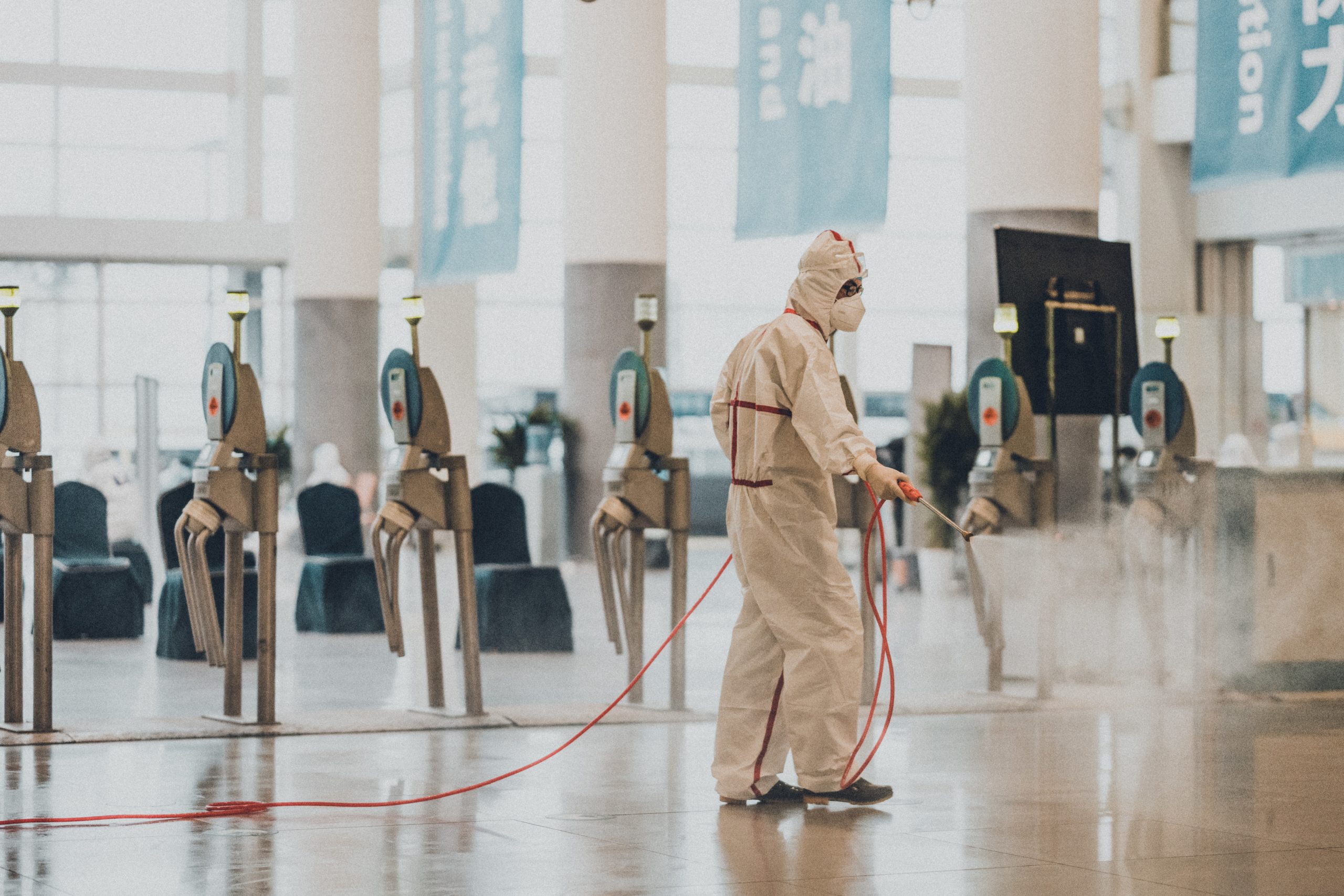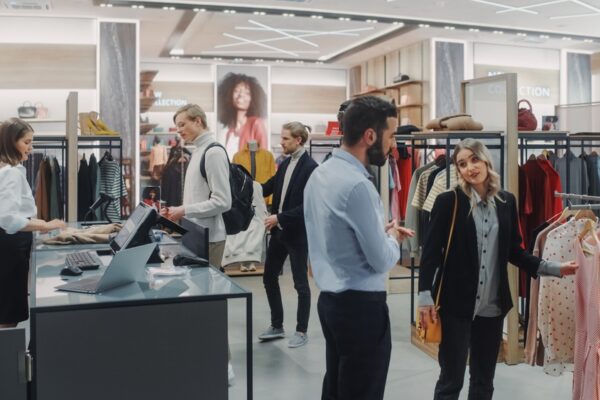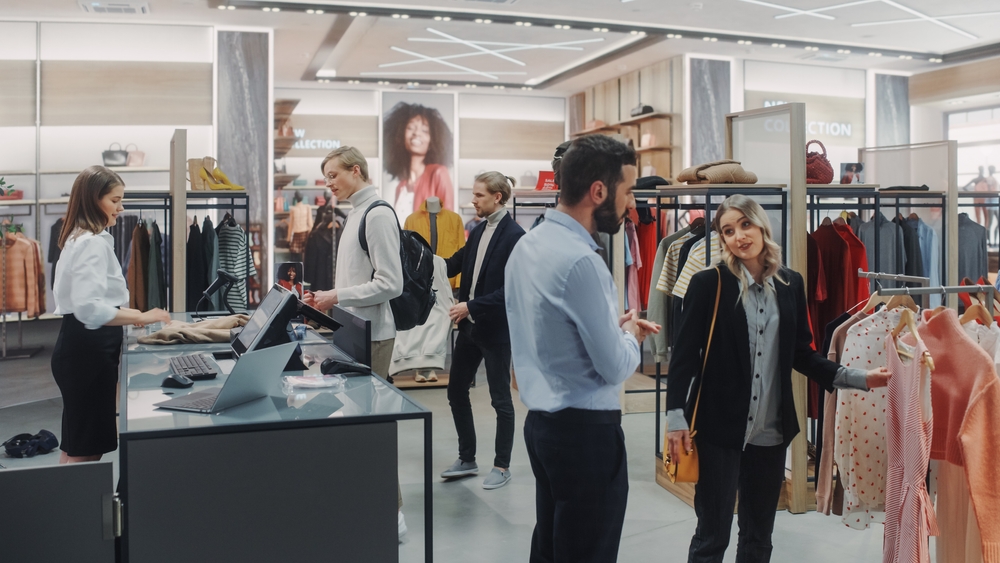
New retail technology mandatory to survive post-quarantine landscape
The saying, “The more things change, the more they stay the same,” couldn’t be truer as we navigate the reopening of non-essential businesses. We’re starting to see a sneak peek at what retail will look like post-pandemic, and for the foreseeable future, many of the setups and processes that were created during the Covid-19 outbreak will remain in some fashion. It will now be up to retailers to adjust and look to new technologies and innovations that will transform the retail landscape.
Omnichannel shopping will accelerate
Consumer habits have been altered by the pandemic. If people weren’t tech-savvy before — hello, boomers and Generation Z — social distancing has forced them to become more comfortable with things like ordering online. And online shopping will continue to rise for some time. Even before the coronavirus, brick-and-mortar stores were becoming entrenched in e-commerce, and now more than ever, retailers should commit to an omnichannel experience.
Continue offering pre-payment for home delivery and curbside pickup where customers receive an item with an easy pop of the trunk.
Focus on developing or improving mobile experiences for customers. Look at virtual technology to offer try-on clothing sessions, makeovers, or fitting, tailoring, and body clothing measurements.
Explore drone deliveries, which will grow in popularity as retailers get creative in delivering their products, such as coffee or alcohol.
A reinvention of retail will be mandatory to survive.
Going the social distance
When it comes to shopping in physical stores, people will continue to be conservative. Customers have become accustomed to the drill of staying six feet apart at essential businesses like grocery, drug and home improvement stores. All that distancing will be necessary for the foreseeable future. Similar to airlines eliminating middle seats or restaurants operating at half capacity and spacing tables, retailers will need to reconfigure their businesses so that people don’t crowd entrances, aisles and checkouts. While we’ll see more cashier-less checkouts, there are also companies that are reinventing existing technology to work in the new post-quarantine world. For instance, the company Indyme is using sensors that were used to detect theft and track foot traffic in stores to monitor proper social distancing. Indyme recently introduced the SmartDome system, which can be mounted above areas where distancing reminders are most needed, such as checkouts and busy departments. When the system detects shoppers are too close, announcements can be made to let them know.
Recommended
A new level of cleaning
If Covid-19 has taught us anything, it’s that there can never be enough cleaning and disinfecting. Appearances are everything to virus-conscious customers, so retailers must create a strong force to convince people that they’re entering a safe and sterile environment. That will mean never-seen-before cleaning of everything that customers touch from meticulously scheduled wipe downs to new disinfectant technology. Some big-box retailers are already experimenting with UV lighting to battle bacteria on store shelves. They’re even utilizing robots that were widely used in hospitals and can disinfect a room in as little as 10 minutes. You can also expect to see touchless glove dispensers become as popular as disinfectant wipes are at the front of the house, and more contactless keypads, so customers won’t have to touch or swipe when paying.
Retail technology reigns
Businesses will be looking for more solutions and inventions that will transform the retail landscape and aid in contactless shopping. Some are getting many requests from large retailers to create interactive displays that can replace the need for a human to explain or demonstrate a product. For example, instead of a live body at a warehouse price club demonstrating how a product works, there will be a live tutorial where customers can ask questions on a video chat. They won’t have to touch a screen — it’s all voice or motion activated.
To reduce the chance for infections, phone bots may soon direct customers to help them find items they’re looking for. And, like a scene ripped from the sci-fi movie Minority Report, I think we can expect to see futuristic optical and voice recognition take a bigger role in retail. Picture a world where customers will be immediately connected to help find what they need when entering a store on an opt-in basis.
The coronavirus has catapulted retailers into a new age. While we’ll be going back in time in some ways, we’ll be moving forward in technology.
To learn more about Brett Beveridge, his company, T-ROC Global, his awards, speaking opportunities and upcoming ForbesBooks launch, visit www.bbeveridge.com.
The Revenue Optimization Companies (T-ROC Global) is home to four sales solutions companies that enable clients to fulfill all of their sales performance needs. The companies are: The Retail Outsource (TRO), Mobile Insight (MI), The Consumer Insight (TCI), and SYMBITS.
Brett Beveridge is the founder and chief executive officer for The Revenue Optimization Companies (T-ROC Global). Beveridge is a serial entrepreneur who builds businesses from the ground up. Since founding T-ROC Global, the company has evolved to become a leader in the wireless, electronics, software and retail industries.








